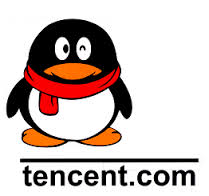There are grounds for scepticism. The Chinese gaming and social media firm started in the same way many local internet firms have: by copying Western success.QQ, its instant messaging service, was a clone of ICQ.And unlike global internet giants such as Google and Twitter, Tencent still makes its money in its protected home market.
Yet the Chinese firm’s stockmarket valuation briefly crossed the $100 billion mark this week for the first time.Given that the valuation of Facebook, the world’s leading social media firm, itself crossed that threshold only a few weeks ago, it is reasonable to wonder whether Tencent is worth so much.However, Tencent now has bigger revenues and profits than Facebook.In the first half of this year Tencent enjoyed revenues of $4.5 billion and gross profits of $2.5 billion, whereas Facebook saw revenues of $3.3 billion and gross profits of $935m.
The Chinese firm’s market value reflects the phenomenal rise in its share price.A study out this week from the Boston Consulting Group found that Tencent had the highest shareholder total return( share price appreciation plus dividends) of any large firm globally from 2008 to 2012 -topping Amazon and even Apple.
Tencent has created a better business model than its Western peers.Many internet firms build a customer base by giving things away, be they search results or social networking tools.They then seek to monetise their users, usually turning to online advertising.Google is a glorious example.Other firms try to make e commerce work.But as the case of revenue rich but profit poor Amazon suggests, this can also be a hard slog.
 Tencent does give its services away: QQ is used by 800m people, and its WeChat social networking app has several hundred million users.What makes it different from Western rivals is the way it uses these to peddle online games and other revenue raising offerings.
Tencent does give its services away: QQ is used by 800m people, and its WeChat social networking app has several hundred million users.What makes it different from Western rivals is the way it uses these to peddle online games and other revenue raising offerings.
Once users are hooked on a popular game, Tencent then persuades them to pay for” value added services” such as fancy weapons, snazzy costumes for their avatars and online VIP rooms.Whereas its peers are still making most of their money from advertising, Fathom China, a research firm, reckons Tencent gets 80% of its revenues from such kit( see chart).
There are some problems too.Tencent is too big and bureaucratic to create things themselves.A more pressing worry for Tencent’s shareholders is that its lavish spending, on top of heavy investment in improving its unimpressive e commerce offerings, will eat into profits.Worse, the m commerce arms race risks distracting it from gaming and value added services, the cash cows that are paying for everything else.A $100 billion valuation might then seem too rich.
http://tech.sina.com.cn/i/2013-10-03/09428788006.shtml
http://mi.techweb.com.cn/tmt/2013-09-30/1339967.shtml
 When I look at this blog, we know that as one of the well-known business operations in the world, Nestle is deciding to diminish its unprofitable sectors. This is because despite bad brands can make profit in some cases; their marginal benefit is lower than the average benefit and cannot run Nestle as a profitable company. I totally agree with Dimu’s opinion because cost is an important element to consider in business operation. If Nestle continue operates these bad brands, it will increase its’ total cost, also unprofitable brands will create bad influence on Nestles’ reputation since the company need to show their financial statement to public.
When I look at this blog, we know that as one of the well-known business operations in the world, Nestle is deciding to diminish its unprofitable sectors. This is because despite bad brands can make profit in some cases; their marginal benefit is lower than the average benefit and cannot run Nestle as a profitable company. I totally agree with Dimu’s opinion because cost is an important element to consider in business operation. If Nestle continue operates these bad brands, it will increase its’ total cost, also unprofitable brands will create bad influence on Nestles’ reputation since the company need to show their financial statement to public.



















